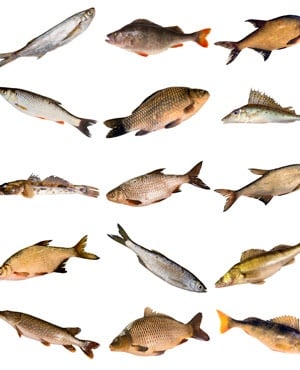
Looking after South Africa’s fish stocks is crucial for staying in business.
“The reason we are here is because of fish. We need to keep the industry sustainable if we still want to be around in 50 years,” says Madoda Khumalo, Sea Harvest’s group resource and sustainability manager.
As fish stocks plummet worldwide, South Africa’s leading commercial fishing company says keeping South Africa’s fish industry sustainable is key to the survival of the company. Sea Harvest provides local, wild, sustainably fished Cape hake, which is caught off the south and west coasts of southern Africa.
The amount of fish in the oceans globally has halved since 1970, a plunge that brought the food source to the “brink of collapse”, and was caused by overfishing and other threats, the WWF’s Living Blue Planet report revealed last month. The report said that some fish species, such as tuna and mackerel, have diminished by 74% in just 40 years.
As well as being disastrous for ecosystems, these findings spell trouble for countries such as South Africa, which has a vibrant fishing sector and which depends heavily on the ocean’s resources.
The WWF estimates that about 70% of South Africa’s commercial fish species is considered collapsed.
A senior manager at WWF SA’s marine programme, John Duncan, says South Africa’s inshore fishing is in crisis, where species such as crayfish and perlemoen have experienced an almost 90% decline.
But it is not all doom and gloom. South Africa’s offshore fisheries, which include Cape hake, were relatively well managed.
Duncan says South Africa’s offshore hake fishery is the only fishery in South Africa to attain the prestigious Marine Stewardship Council standard. This internationally respected independent body hands certification to well-managed and sustainable fishing industries.
South Africa’s multibillion-rand hake trawl industry is indeed a ray of light. It is the country’s most valuable commercial fishery, contributing 2% to GDP, according to international studies. But fishing companies such as Sea Harvest have to go beyond the call of duty to ensure that it stays that way.
In May, the Marine Stewardship Council certification was renewed for another five years after a rigorous 12-month assessment. This was the third five-year period that the local hake industry has been certified.
To get certification, the Marine Stewardship Council scrutinises the industry to ensure there is no overfishing or depletion of fish stocks; that fishing operations do not have a negative effect on the health of the marine ecosystem; and that fishing is managed and regulated responsibly.
Keeping South Africa’s blue economy going is critical. The fishing industry provides employment to about 26 500 people, with Cape hake fishing directly employing 8 300 men and women.
Sea Harvest alone provides 2 425 jobs, with 25% to 30% of all household income in the Saldanha Bay municipal area generated as a result of the company’s activities.
And the certification ensures that South Africa has critical access to overseas markets that are stringent about buying sustainable fish. Germany and France want confirmation that the fish they supply to their customers is sustainably caught.
And South African retailers such as Woolworths and Massmart are upping the pressure on fishing companies to ensure they offer only sustainably caught products to consumers.
Massmart group sustainability manager Alexander Haw says it is crucial for Massmart to source only sustainable fish, and it works closely with fishing companies such as Sea Harvest.
For consumers, Marine Stewardship Council certification means a consistent supply that is fully traceable and from a certified sustainable resource.
Sea Harvest’s Khumalo says a loss of certification in the fishing sector will lead to a potential loss of about 12 000 jobs.
“What is good for the environment is definitely good for business,” says Khumalo.
To ensure that Sea Harvest is catching sustainable fish, the company has ring-fenced its fishing ground, says Khumalo. This prevents damage to the bottom of the seabed not previously trawled and protects hake populations not swimming in the trawling area.
Sea Harvest is also curbing its efforts to catch fish, limiting its days at sea and ensuring its deep-sea fishing fleet doesn’t grow too big for the available resource.
Khumalo says the fishing industry has also worked with government scientists to institute a number of measures aimed at preventing the targeting of valuable by-catch – unwanted fish and other sea animals caught in a fishing net, along with the desired kind of fish.
“By-catch species, most notably kingklip and monk, are more valuable than hake and precautionary upper catch limits have been set for kingklip and monk,” says Khumalo.
Sea Harvest is also part of an alliance of five leading South African fishing companies that partner with the WWF and BirdLife SA to improve the sustainability of South Africa’s fisheries. One of the success stories of improved fishing practices and cooperation is a 90% decline in seabird mortalities and up to a 99% reduction in accidental albatross deaths.
“A estimated 18 000 black albatross died every year in the hake trawl industry,” says Khumalo. “By introducing specialised lines, we were able to reduce the number of birds drifting towards the line and then getting tangled.”
The alliance also provides training to equip skippers, compliance staff, fisheries observers and managers with the skills and knowledge to manage the fisheries sustainably.
THE BLUE
ECONOMY




 Publications
Publications
 Partners
Partners








